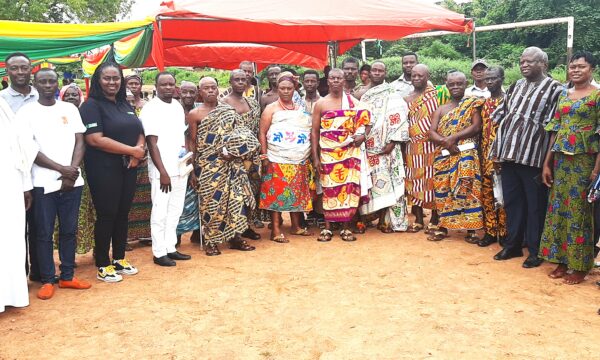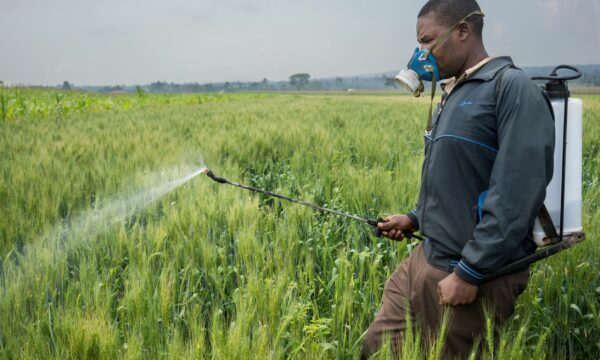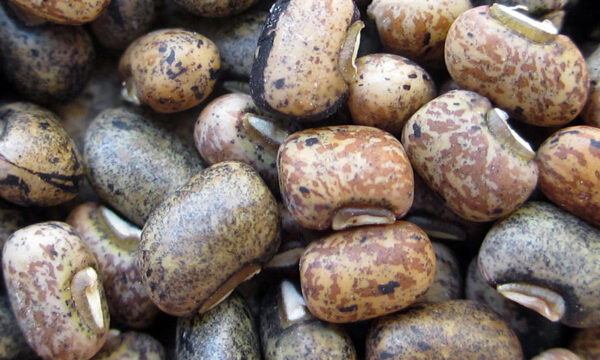A new study by the International Institute of Tropical Agriculture (IITA) looking at cowpea crop diversity following floods and drought in Mozambique has shown that seed sharing networks are a valuable way to maintain, and often improve, crop diversity. Informal sharing and trade of seed within and between local communities in the Limpopo River Valley, Mozambique has been specified as the reason for a relatively quick recovery of cowpea crop diversity following floods and drought in the area in 2000. The study showed that farmers who grew ‘relief seed’ distributed by humanitarian agencies, or bought seed from the market did not have much diversity in their cowpea crops. However, the farmers who exchanged seed as they had done before the disasters contributed the most to restoration of cowpea diversity in the area.
A traditional practice of African farmers is to grow several varieties of a crop species on the same land to create new varieties from crossings and to provide resilience to environmental catastrophes. Seed is also traditionally exchanged between friends and families through gifts or trade. Both of these methods prevent monocultures that are not stable to fluctuations in environmental conditions developing. One of the ways humanitarian agencies provide relief to farmers following a natural disaster is to distribute seed relief packages. However, these seeds often have little genetic diversity, which results in farmers having a less varied assortment of crops.
The IITA study has shown that seed sharing networks are a valuable way to maintain, and often improve, crop diversity. Some relief agencies have already acknowledged this and hold “seed fairs” where farmers who have not lost their crops can sell their excess seed to those affected by the disaster.
The Food and Agriculture Organization of the United Nations has published a report that describes a formal seed supply system that could be used in sub-Saharan Africa to build on the local informal networks and provide added security against loss of crop diversity following future environmental catastrophes. The system is centred on a seed bank – a reserve store of seeds of all genetic varieties – that also comprises a collection of records of local and scientific knowledge. The seed bank would collaborate with local markets, crop breeders, farmers and scientific experts, and would be a centre not only for sharing resources but for exchanging agricultural know-how. Regional seed banks would then be connected to build a national, continental, or even global, seed network.
A combination of traditional and modern seed networking could improve farmers’ abilities to recover from natural disasters, and will become more important as farmers adapt their agricultural practices to changes in the climate.
Source: IITA (2011) Local seeds and social networks. Available from: http://r4dreview.org/2011/11/local-seeds-and-social-networks/
1 Comment
Leave a Reply
Related News & Blogs
How do pest risk registers address the spread of plant pests in Africa?
Pest risk registers can help to solve problems in agriculture, addressing the growing global threat of plant pests. Moreover, changing weather patterns, led by rising temperatures, are causing them to reproduce faster and expand into new regions. In ad…
10 July 2025






Reblogged this on African Seed Network.